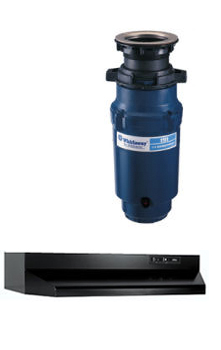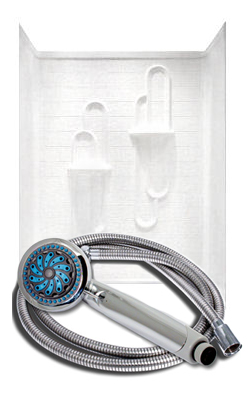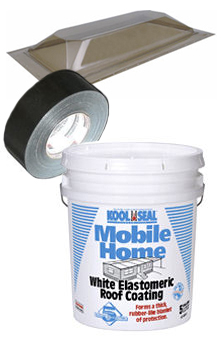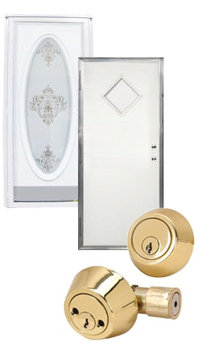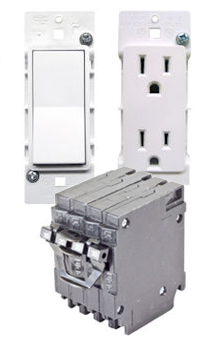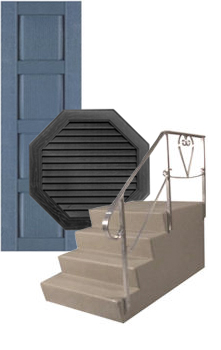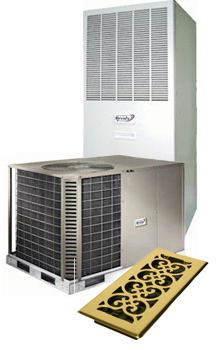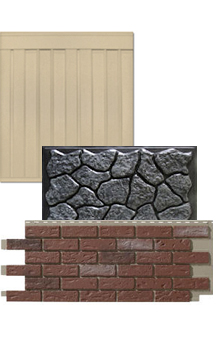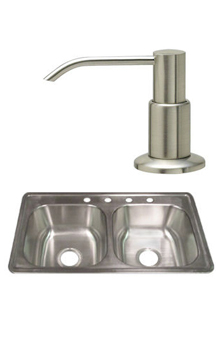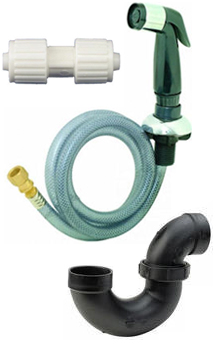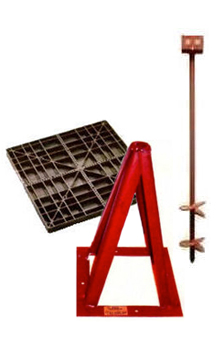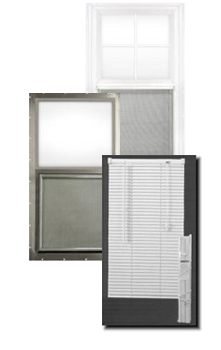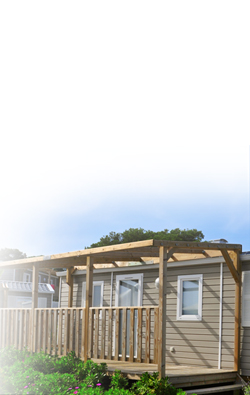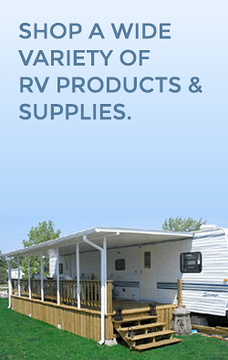
Living in a mobile home has many perks. It’s an affordable and flexible housing option that offers comfort and convenience. However, safety is one of the most important aspects of any home, especially mobile homes.
All homes face safety hazards, but mobile homes have unique challenges due to their size and materials. Whether you’re new to mobile home living or have been doing it for years, understanding these safety concerns is essential.
Here are some key safety measures to help keep you, your loved ones, and your mobile home safe and secure for years to come.
Strengthening Fire Safety
Keeping your mobile home safe from fires is crucial. In 1976, HUD set strict rules for how manufactured homes are designed and built. This means manufacturers must meet specific standards for things like the electrical system, plumbing, heating, and air conditioning, just like regular homes.
To reduce the risk of fire in your mobile home, it’s important to maintain heating equipment such as furnaces, flues, fireplaces, space heaters, wood stoves, and water heaters.
Mobile Home Safe with Smoke Detectors
Smoke detectors are like early warning systems for your home. They alert you if there’s smoke in certain areas, but where you put them matters.
For the best protection, put a smoke detector in or near every room except the kitchen. Cooking in the kitchen can sometimes produce smoke that might accidentally set off the alarm.
A smoke detector in each room can alert you if a fire starts inside your home. It can also help you determine where the fire began so you can try to put it out before it spreads.
Smoke Detector Regular Maintenance
To keep your smoke detectors in good shape:
- Test them every month to make sure they work.
- Change the batteries every six months to keep them powered up.
- Replace the whole smoke detector every 10 years to make sure it’s still reliable.
- Vacuum them monthly to clear away dust that can clog them and make them less effective.
For even more safety, consider getting smoke detectors with carbon monoxide detectors. Carbon monoxide is a dangerous gas that can build up if things like furnaces or gas appliances aren’t ventilated properly. Carbon monoxide detectors can help keep you safe from this silent threat.
Putting Electrical Safety First
Don’t underestimate the danger of electrical fires in mobile homes. Electrical fires are dangerous and can happen unexpectedly, so it’s essential to take precautions.
Start by making sure all your electrical outlets have covers. Exposed wires can easily cause fires and even shock you. If you notice any issues with your electricity, like flickering lights or outlets that don’t work, don’t try to fix them yourself. Instead, hire a licensed electrician to inspect and repair the problem safely.
DIY electrical work might seem like a good idea, but it often leads to more problems. Incorrectly rewiring outlets or switches can spark fires. Even simple tasks like changing light bulbs should be done carefully. Always turn off the power at the breaker to avoid sparks.
Other Tips to Prevent Mobile Home Electrical Fires
- Never hide extension cords under rugs; they can get damaged and start fires.
- Don’t overload outlets, extension cords, or circuits. If something trips or blows, call a professional electrician.
- Use surge protectors to guard against sudden spikes in voltage.
- Keep anything flammable away from outlets and light bulbs.
- When replacing fuses, make sure you’re using the right size for the wire. Some electricians might suggest a ground monitor to spot problems in your system.
- Keep your dryer vents and lint screens clean to prevent fire hazards.
Keep Your Mobile Home Safe: Heating and Ventilation Tips
When it gets chilly, we rely more on heaters and stoves to keep warm in our mobile homes. But did you know that these systems can pose safety risks? Here’s what you can do to stay safe:
- Clear Those Vents: Make sure the vents for wood stoves, HVAC systems, and dryers are free from obstructions. Vacuum or clean them regularly and change filters as needed. Also, keep flammable items away from these hot appliances.
- Get a Pro’s Help: Have a professional check your heating and ventilation systems every year to catch any problems early. This not only prevents fires but also saves you money on energy bills. Fall is a good time for this checkup before winter sets in.
- Upgrade Your Space Heater: If you use portable heaters, choose newer models with safety features like tip-over protection and automatic shut-off. Never plug them into an extension cord, and keep flammable items at least three feet away.
Prevention is Key

When it comes to mobile homes, fire safety should be a top priority. Preventing accidents is way better than dealing with them afterward.
Here’s what you can do:
Fire Precautions
Take a few precautions to keep your home safe from fires. Get flame-resistant materials for your furniture and bedding. Also, have a couple of fire extinguishers handy—one in the kitchen and another near the furnace. Make sure they’re labeled “multi-purpose, dry-chemical,” suitable for class A, B, and C fires, and you know how to use them. And hey, don’t forget to have a fire escape plan for you and your family!
Pest Control
Like any house, it’s best to stop pests before they become a problem. But unlike site-built homes, mobile homes aren’t typically secured to the ground like traditional homes, which means pests can find more ways to sneak in.
To keep pests under control, try these tips:
- Check your skirting regularly for holes and tears—especially if it’s made of plastic. If you have wooden skirting, make sure it’s treated to keep pests away.
- Keep an eye on your home’s underbelly for any damage that might let unwanted visitors in.
- Look for clogged gutters to prevent holes in the roof or behind gutters and fascia. Ceiling or drywall damage allows pests to enter your home.
Protect Your Mobile Home from Water Damage
Water damage can wreak havoc on your mobile home, but it doesn’t take a flood to cause trouble. Even a tiny crack can lead to massive leaks, damaging your subfloor, walls, and cabinetry. Mobile homes are particularly vulnerable to water damage because of the materials used in their construction.
To keep your home safe and dry, follow these tips:
- Manage Moisture: After activities like showering or cooking, use ventilation fans. They suck out excess moisture, preventing it from seeping into your home’s nooks and crannies.
- AC Size Matters: Make sure your air conditioner is the right size for your home. If it’s too big, it’ll switch on and off too often, making things too humid or not cool enough.
- Get the Right Filters: Get pleated filters for your heating and cooling system. They’ll help keep dust down and remove moisture from the air.
- Clear the Air Vents: Make sure the air can flow freely through your vents. Blocked vents mean uneven temperatures and can lead to mold.
- Watch Those Heaters: Do you have a propane or kerosene heater? Keep an eye on it. They can pump out water vapor along with the heat, causing problems.
- Spot the Signs: Look for musty smells. Check your walls and ceilings for weird discoloration or swelling. If you see condensation on your windows or doors, you might have a moisture problem.
Storm-Proofing Your Mobile Home
Mobile homes are more susceptible to damage from high winds, hurricanes, and tornadoes than traditional homes. To protect your mobile home from severe weather, here’s how you can make sure your home stays safe:
Secure Foundations
Mobile homes are more prone to tipping over during severe weather than site-built homes. To improve safety, focus on the foundation and anchoring system:
- Foundation Stability: Ensure your home has a sturdy foundation. A permanent foundation, such as a concrete slab or full basement, adds stability and meets building codes.
- Anchoring Systems: If your home isn’t on a permanent foundation, use anchoring systems. These involve steel straps and anchors driven into the ground. Install at least four for single-wides and six for double-wides, following manufacturer instructions and local codes. Regularly inspect and maintain these anchors, replacing any damaged or rusty ones.
Keep an eye on your anchors and foundation. Check them regularly for damage or rust. If you spot any issues, replace them right away to keep your home secure. If you feel unsure about their condition, get a professional to take a look.
Additional Safety Tips
Emergency Ready
- Plan Ahead: Make sure you’ve got a first aid kit handy and that everyone knows where it is and how to use it. Keep a list of important contacts, such as local emergency services, hospitals, and utility companies.
- Have a Plan: Work out an evacuation plan with your family and practice it every now and then. Know the safest ways to get out of your home and where to meet up outside. Also, think about setting up a safe room or storm shelter nearby for extra protection during a storm.
Regular Upkeep
- Routine Inspections: Regularly check your home’s structure, systems, and safety features. Look at the foundation, roof, plumbing, and electrical systems.
- Get Help: Have pros check out your heating, ventilation, and electrical systems every year. This helps catch any issues early.
- Tree Trimming: If safe, cut back any tree branches hanging over or near your home. During a storm, these branches could fall and cause more damage.
- Secure Trims: Make sure exterior trim is firmly attached to your home.
Community Support
- Local Rules: Know the local building codes and safety standards for mobile homes and ensure you meet these standards.
- Community Help: Join local groups for mobile homeowners. They can offer helpful tips and support for keeping your home safe.
Protect Your Home with Mobile Home Parts Store

Ensuring your mobile or manufactured home is safe is crucial for your family’s well-being. While you can’t avoid every danger, there are things you can do to lower the risks. Securing the foundation, improving fire safety, keeping pests away, avoiding water damage, and making your home stronger against storms are all smart steps. Doing regular upkeep and learning about mobile home safety can make a big difference in keeping you safe.
Please make sure to make your mobile home safe and secure before it’s too late. Mobile Home Parts Store has everything you need to keep your home in top shape and protect your family. Get in touch today to find out how we can help you take care of your home with a little elbow grease!
Tags: manufacture home, manufactured home, mobile home, mobile home safety, safety


